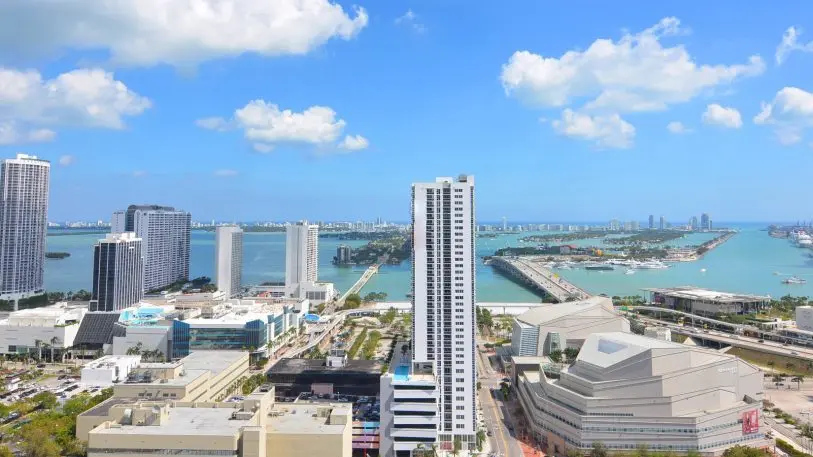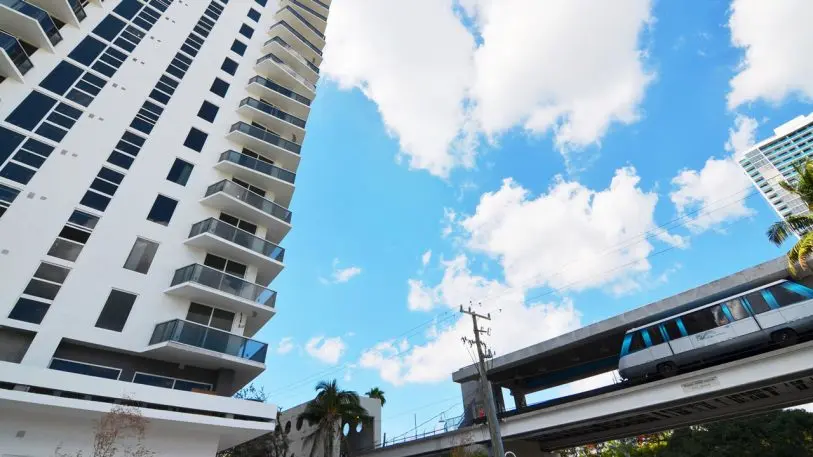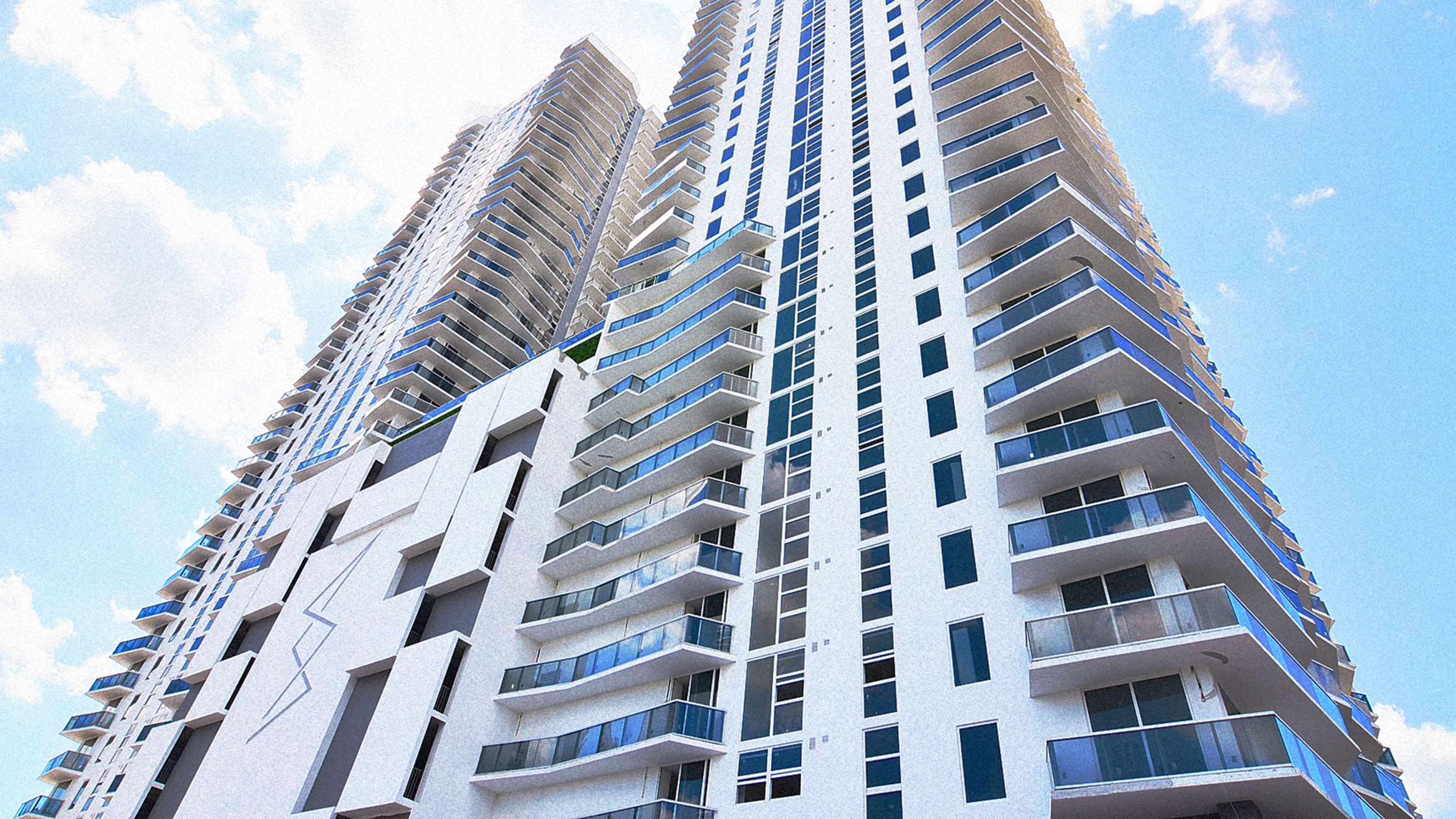In Miami, when a developer wants to put up a new residential building, they also have to provide 1.5 off-street parking spaces for each unit in the structure. This is not specific to Miami: Across the U.S., cities enforce minimum parking requirements–laws that require new buildings to include a specific number of parking spaces, depending on the type of building. In Los Angeles, for instance, new single-family homes require two dedicated parking spaces, as do two-bedroom apartments in larger buildings. One-bedroom apartments require 1.5 spaces.
The problems with these minimum parking requirements are fairly obvious. With cities like Miami already strapped for adequate housing, mandating developers to build spacious garages is fairly ludicrous, especially because further constricting available space for housing raises rents. And the availability of parking serves to promote driving, something congested and climate-vulnerable cities should actively be trying to avoid.

To Carlos and Martin Melo, brothers and developers who first came to Miami from Argentina in 2001, the fixation with parking is a source of frustration. So for their latest project with the Melo Group, which they head up along with their father, they decided to take a stand against parking minimums, and offer residents a $100 discount on their rent every month (rents range from $1,650 for one-bedroom units to $2,500 for a three-bedroom) for not using their allotted parking spot in the garage.
Square Station, their latest project, recently opened right next to a station on Miami’s light rail line. With two 34-story towers, the project brings 710 new units to a part of the city that’s grown in population by 40% since 2010. But there was no way around it: The Melo Group still had to build enough garage space to hold 1,065 parking spots.

“What we want to see for Miami is people not using their cars to get to work,” Martin Melo tells Fast Company. “Everyday trips should be made by public transportation.”
The building is about 75% leased now, and few residents are taking up the Melo brothers on their $100 discount offer–many people, even if they don’t drive to work, like to have a car for longer weekend trips, Martin says. But the brothers hope that the offer gets residents thinking about the cost of using their cars in a more personal ways–and potentially alert the city to the fact that the need for private cars is diminishing.
“The younger generation, especially people who live near their work, are noticing that they don’t need their own cars,” says Carlos Melo. If people need to get somewhere in a car, they can take Uber or Lyft, he adds, and the nearby public transit or a bike should be the first option.
The transition to building without space for cars, Carlos adds, “will take time.” But the brothers are hopeful that the economics will ultimately weigh against parking minimums–cars don’t pay rent, so for developers, having to provide space for them is expensive, and for cities, it’s quite inefficient (what the building would do with its empty garage if every tenant took the Melos up on their offer is unclear). As local regulations hopefully evolve to recognize that, the Melo brothers are content to offer their residents a small bonus for being ahead of the times.
Recognize your brand’s excellence by applying to this year’s Brands That Matter Awards before the early-rate deadline, May 3.
